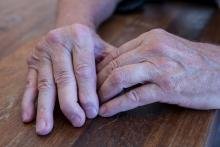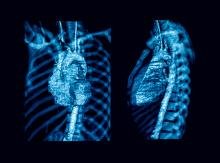The PANLAR 2021 Patient Congress addressed different topics, including the presentation of the Consensus on Shared Decision Making.
Transcript
EF: Hello everyone and welcome to a new Global Rheumatology videoblog, where we are covering everything that is PANLAR 2021. We are with Dr. Emilia Arrighi, she is part of the Patient Congress that is taking place this year and she is going to talk to us about a consensus that was presented. Doctor, welcome.
EA: Thank you, Estefania. I'm delighted to join Global Rheumatology. I know you are covering the entire Congress, so I'm very excited to have this with this additional tool, which is the coverage so that we are all aware of what is going on at the Patient Congress.
EF: Doctor, tell us about the consensus that was presented.
EF: What we did at the Patients' Congress was to present the methodology we are going to develop. We have already been working on the previous part to prepare this consensus, which will be promoted by the JUNTOS group, as you know, the group is made up of patients and physicians, so on this occasion we believe that this topic, which is very much in vogue, is a topic of great interest, needs to be dealt with in more detail and in more depth and so what we are going to do is, on the one hand, what we have already done is to set up a committee of experts, a series of semi-structured interviews will be conducted during the congress, a specific symposium was held in this area which was of great interest.
We had the opportunity to listen to one of the world's leading experts on this subject, Dr. Victor Montori, from the Mayo Clinic, and we also had the opportunity to listen to the direct participation of a leader from Spain, from the Catalan Rheumatology League, Elisenda De la Torre, who is a person who has also been working continuously in this area and who gave us some insight into what is happening in Spain, in Europe.
Then we had the contribution of local leaders by region, sharing a little of their vision, their impression of how patients and professionals are in relation to this issue. What is left for us to do now? Well, we are going to promote an open population survey using an instrument, a questionnaire that has already been validated on shared decision making, and then, based on the data we collect from the whole region, imagine, Estefanía, that patients from the whole of the Pan-American region with different rheumatic diseases, of different ages, are going to participate.
So, we are going to have a great source of information so that later, together with the leaders of each of these patient regions, and also of health professionals, we can determine in a consensus this final document with a series of recommendations that I believe will help us to improve in everything that has to do with this area of knowledge that is shared decision making.
EF: You are talking about shared decision making, how important is this aspect?
EA: It is a subject, as we were saying, which is much talked about, but which in reality is still more installed in discourse than in action. I believe that in order to achieve a true in-depth conversation between health professionals, between rheumatology specialists and patients, different factors are necessary. One of the factors that was talked about a lot at the Symposium is related to the time available for consultation, another is related to the fact that we have to make two kinds of progress on the part of the patients, to see how much the patients are encouraged to ask a little more, since many of them have a profile that is a little more shy in front of the specialist, and it is difficult for them to ask, or they are not used to it, and on the other hand, to reinforce the health professionals, In this case, rheumatologists, the skills related to listening, and how patients can then receive the information they need to be able to reach a decision together with the specialist, together with the professional, who is the one with the experience, the one who has that background, to be able to reach a decision that satisfies both parties, that we can meet the clinical requirements, but that we also have the patient's point of view and that commitment.
Because we also saw that this will have an impact later on, on adherence to treatment, on the way in which the patient will be faithful or not to the follow-up consultations, in other words, it has a very big impact on the patient's general treatment perspective.
EF: What is the invitation to patients, to physicians, to everyone to enter PANLAR 2021 and see everything that is happening, such as this presentation?
EA: You can't miss it. This morning we had one of the most important experts on this topic and it will continue, so we invite you all to follow us on the networks, there is the PANLAR hashtag, you will find it easy to be informed of everything that is happening and there are a lot of very interesting topics.
It is also very important to be close to this Congress because, as it is a Congress that is also designed from the patients' perspective, we also understand the level of importance of the topics, and how patients will be prioritizing the topics in a different way, today a very exciting debate on the vaccine against covid-19 is very interesting, so we invite you to follow it closely.
EF: Thank you very much, doctor, for this space for Global Rheumatology.
EA: To you and excellent work. Best regards to all.







